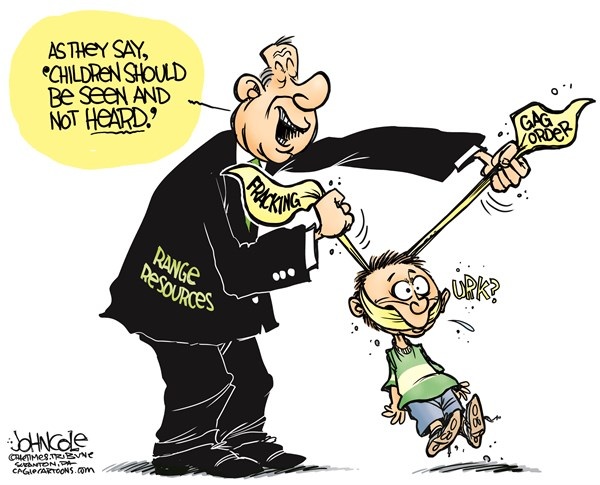We cannot insist that sexual assault survivors ‘go public’ by Emma Phillips, Sept 25, 2019, The Globe and Mail
[But humans must insist that gag orders used by corporations to cover-up their crimes, pollution and harms, and ordered by judges to enable the cover-ups, are made illegal. Such gag orders, especially when ordered by judges, knowingly put communities “down the street” at risk.]
Emma Phillips is a labour lawyer who has acted as legal counsel on prominent reviews addressing sexual harassment in organizations, including the Canadian Armed Forces. She is a partner at Goldblatt Partners in Toronto.
Last week, Megan Twohey and Jodi Kantor, two of the journalists responsible for exposing sexual assault allegations against Harvey Weinstein and triggering the #MeToo movement, revealed how the feminist lawyer mother-daughter duo, Gloria Allred and Lisa Bloom, were themselves complicit in protecting Mr. Weinstein. In particular, Ms. Twohey and Ms. Kantor decry the use of “non-disclosure agreements,” or NDAs, a legal contract that guarantees the complainant will keep her allegations confidential in exchange for a monetary settlement. NDA’s are, indeed, an ugly instrument. But what Ms. Twohey and Ms. Kantor miss is that going public with allegations of sexual harassment isn’t the right option for everyone.
While #MeToo has been a powerful movement, we cannot put the burden of exposing the Weinsteins of the world solely on the shoulders of survivors or judge them when they choose to put a tragic and painful episode behind them in order to move forward with their lives.
[It’s impossible for many to “move forward” after rape, notably childhood rape. It is possible to learn how to manage the stress and nightmares, and survive. Perhaps a way to transform Canada’s inaccessible, old white man, inefficient, exorbitantly expensive, inhumane legal system into a fair, efficient, accessible system, is to mandate that all judges have experienced sexual assault and rape, and been coerced by their lawyers to sign gag orders or “wind down” their lawsuit if they filed one.]
On The New York Times podcast The Daily, Ms. Twohey and Ms. Kantor detail how both Ms. Bloom and Ms. Allred sought to use the Weinstein allegations to their professional advantage. For her part, Ms. Bloom used her reputation and experience as a fierce advocate for women to market her legal and PR services directly to Mr. Weinstein. “I feel equipped to help you against the [Rose McGowans] of the world,” Ms. Bloom wrote to Mr. Weinstein, “because I have represented so many of them. They start out as impressive, bold women, but the more one presses for evidence, the weaknesses and lies are revealed.” For anyone who has worked with survivors, Ms. Bloom’s blithe assassination of her clients’ experiences and integrity is truly abhorrent.
In the case of Ms. Allred, the journalists report how the high-profile lawyer was quick to represent Mr. Weinstein’s victims as soon as the story started to break in 2017. Yet it turns out that years previously, in 2004, Ms. Allred’s law firm had advised another alleged Weinstein victim to settle her allegations for financial compensation and an ironclad NDA. At the same time that Ms. Allred was encouraging women to publicly accuse Ms. Weinstein, Ms. Twohey and Ms. Kantor point out, Ms. Allred knew that her office had participated in the kind of cover-up that allowed Mr. Weinstein to continue in his predatory behaviour.
What Ms. Twohey and Ms. Kantor’s story neglects is that not every survivor wants to be made the poster-child for #MeToo. It’s one thing to publicly accuse a powerful aggressor in the company of dozens of other women; it’s another to be the lone voice.
We know what the legal system and the media can do to those who go public – never mind trolls and anyone with a Twitter or Facebook account.
***
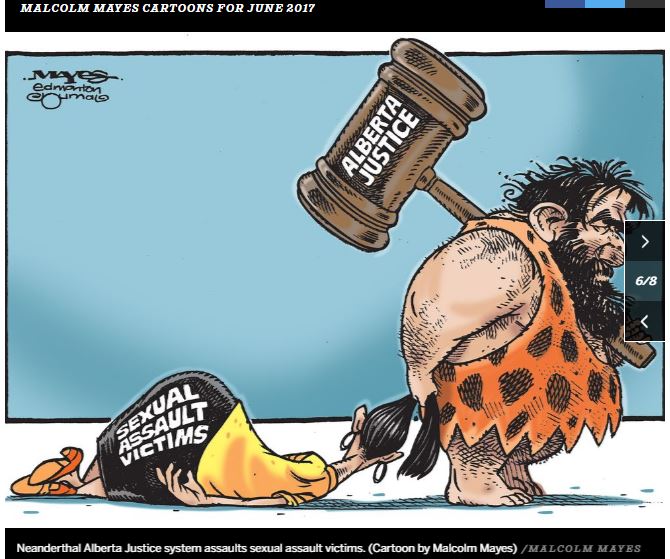
***
It takes extraordinary courage to accuse an aggressor (whether or not they have celebrity status) of sexual harassment, and it can also result in real personal sacrifice – including re-traumatization, serious stigma, reputational damage, legal costs and tremendous time and energy for as long as the legal battle wears on. I am by no means discouraging survivors from coming forward. We need women (and men) to take a stand so that we can push the law forward and shift societal norms. There have been numerous occasions when I have desperately wanted a client not to settle because they had strong facts upon which to fight an important human rights claim. But as a lawyer, it is not my job to push my clients into fighting the battles that I want to see fought. I have to be attentive to their own personal needs and interests.
Public allegations are an important mechanism for accountability, but some survivors will never come forward unless they can be assured of absolute confidentiality. The risks of stigma and reprisals are too great. It is for this reason that institutions such as the Canadian Armed Forces and numerous universities have created confidential mechanisms for reporting sexual violence – in order to ensure that at the very least, individuals who have experienced these harms can get therapeutic support, medical care and advice on their legal options. At the same time, the institutions themselves gain more information about such incidents so they can take preventive measures. This is another important way in which we can ensure social change over time.
Non-disclosure agreements have an ugly reputation, and deservedly so.
But in attending to the rights and interests of survivors, we also cannot insist that every individual “go public.” Sexual violence is devastating in part because it undermines the survivor’s agency. Part of the remedy is to give them that agency back again.
One of the comments:
Alceste [Reportedly, from past comments, a lawyer]:
I agree 100% that the decision to make a private settlement or force a public trial to the end is up to the complainant (often called the victim). No matter how important the issue, it has to be the client who calls it.
I hated non-disclosure agreements when I was new, but came to understand that they’re almost universal – no ‘gag order’, no settlement. Nobody pays significant bucks to settle if the allegations against them are going to continue. [And that’s precisely what makes gag orders so vile, abusive and wrong, and dreadful that judges, anywhere, ever order them]
trec53
If a complainant is to be anonymous, then it is equally valid that the accused remain similarly anonymous. That is simple, straightforward logic and justice. // . If one hides behind the shield of public awareness, then so too should be the other party. It is really quite simple and straightforward justice. Until it hits and becomes resolved in a court of law. [Terrifying to me that people think this way. No wonder “justice” does not exist in Canada, except for the powerful, rich, criminals, and law-violating corporations, regulators, public servants, lawyers and politicians]
****
****
Previously Unknown Sources Come Forward in a New Book About Harvey Weinstein by Alexandra Alter, Sept 8, 2019, The New York Times
Two years before the allegations of sexual harassment and abuse against Harvey Weinstein became public, his own brother and business partner, Bob Weinstein, confronted him, pleading with him to get medical treatment for what he described as many years of “misbehavior.”
“You have brought shame to the family and your company through your misbehavior,” Bob Weinstein wrote. “Your reaction was once more to blame the victims, or to minimize the misbehavior in various ways. If you think nothing is wrong with your misbehavior so in this area then announce it to your wife and family.”
The previously unreported letter is reprinted in full in “She Said: Breaking the Sexual Harassment Story That Helped Ignite a Movement,” a new book by Jodi Kantor and Megan Twohey, two reporters at The New York Times who broke the story of Harvey Weinstein’s alleged misdeeds, helping to spark the global #MeToo reckoning. The book, to be published on Tuesday by Penguin Press, sheds new light on the roles that several figures played in enabling Mr. Weinstein and covering up his misdeeds, and names key sources who helped reporters break the story — including company officials, Hollywood stars and other victims of the producer’s alleged abuse.
Drawing on new reporting and previously undisclosed corporate records, emails and text messages, “She Said” uncovers more on the extent of Mr. Weinstein’s alleged transgressions, and the labyrinth of secret settlements and restrictive nondisclosure agreements that allowed Mr. Weinstein and other men in positions of power to conceal their behavior and thrive in their careers, in some cases finding new victims.
Mr. Weinstein, who is facing a criminal trial on charges of sexual assault and rape, has denied ever having had nonconsensual sex and pleaded not guilty.
One of the central figures of “She Said” is a former top executive at the Weinstein Company: Irwin Reiter. Mr. Reiter, an accountant who worked for Mr. Weinstein for decades, was increasingly alarmed by his behavior toward women and had raised concerns within the company, to no avail. The book discloses that it was Mr. Reiter who provided the reporters with an explosive internal memo from an employee who described Weinstein’s routine harassment of junior female employees and actresses. Mr. Reiter also alerted Ms. Kantor and Ms. Twohey, who were investigating financial settlements for sexual harassment from decades ago, to other recent accusations against Mr. Weinstein, bringing new urgency to the investigation.
“She Said” similarly discloses the identity of a Weinstein accuser who has put off inquiries from journalists for 15 years, Rowena Chiu, a former assistant at Miramax who received a settlement in 1998 after Mr. Weinstein allegedly assaulted her in a hotel room. In Ms. Chiu’s account, which she shares in detail for the first time, she describes being silenced by a restrictive nondisclosure agreement and lured back to a job at Miramax in an apparent effort by Mr. Weinstein to keep her close. She struggled with depression and attempted suicide. She stayed silent for nearly 20 years, even declining to tell her husband about the predation or the settlement. (Mr. Weinstein has disputed her story.)
…
“She Said” shows how some figures who have presented themselves as allies of victims have profited from financial settlements that silence them.
The attorney Gloria Allred is one of the most vocal crusaders against sexual harassment and assault. Privately, her firm helped negotiate a settlement that muffled one of Mr. Weinstein’s victims in 2004, taking a 40 percent cut. (The firm has also worked on settlements that silenced victims of Larry Nassar and Bill O’Reilly.) In an interview for “She Said,” Allred defends her use of confidential settlements, arguing that clients are not forced to sign them and often prefer them for reasons of privacy. [I don’t believe Allred’s lame excuse. How many sexual predators/rapists/pedophiles run about town talking about raping and sexually harassing or assaulting people/children?]
Allred’s daughter, the lawyer Lisa Bloom, a prominent victims’ rights attorney, was working behind the scenes with Mr. Weinstein — at a rate of $895 an hour — to quash the journalists’ investigation and thwart his accusers. In a confidential memo to Mr. Weinstein that Ms. Bloom wrote in December 2016, which is reproduced in “She Said,” she offered to help him damage the reputation of one of his accusers, Rose McGowan, and portrayed her background as a victims’s rights advocate as an asset.
“I feel equipped to help you against the Roses of the world, because I have represented so many of them,” Ms. Bloom wrote, before laying out a multistep playbook for how to intimidate accusers or paint them as liars. One of Ms. Bloom’s suggested tactics for undermining Ms. McGowan: “We can place an article re her becoming increasingly unglued, so that when someone Googles her this is what pops up and she’s discredited.”
Ms. Bloom accompanied Mr. Weinstein on a surprise visit to the Times the day before the initial article was published, to present the journalists with information intended to portray several accusers — including Ashley Judd, the first actress to go on the record — as unreliable and mentally unstable.
[Alberta’s vile AER has same slimy lawyer-prepared playbook, the regulator uses smear tactics to try to discredit harmed Albertans that defend their families, homes and rights, and ask intelligent reasonable appropriate questions about non-compliance by oil industry polluters, eg AER describing Ernst to the media and concerned members of the public as “that crazy lady at Rosebud.”
And, much more sinister is Canada’s Supreme Court of Canada knowingly publishing in a ruling, Justice Rosalie Abella defaming Ernst, saying the regulator found her to be a “vexatious litigant” – one of the worst smears a court can dump on civil litigants. No evidence had been allowed to be presented to the Supreme Court in the Ernst vs AER hearing, maybe because documented evidence proves AER judged Ernst to be a criminal, then, terrorist (all without any hearing, trial, and absolutely no evidence), not a vexatious litigant. Even after Ernst filed her lawsuit, AER never said Ernst was vexatious. The Supreme Court of Canada knew what they were doing, four judges called Abella out on her lie, yet all nine judges, including then Chief Justice, Beverly McLachlin, allowed the smear to be published and included the smear in the court’s summary sent to the media without the statement by the four judges (which included McLachlin!) calling out the lie. Media, of course, published the lie. Copying the Charter-violating AER, the Supreme Court fabricated their smear out of thin air (or, perhaps AER or CAPP and Encana wrote it up, and directed them to publish it), without any evidence, not even AER testimony or affidavit, and did not allow Ernst to present the documented truth (letter to Ernst by an AER/then EUB manager, Jim Reid).]
Ms. Bloom has said she was crossing sides to work for Weinstein to encourage him to apologize for his behavior. She later told the reporters that she “deeply regretted” representing him, which she said was a “colossal mistake.” [Slick try! I wouldn’t believe Ms. Bloom if she paid me a billion dollars]
Another member of Mr. Weinstein’s legal team, the attorney David Boies, helped Mr. Weinstein evade scrutiny for his treatment of women over 15 years, working to halt reporting on the producer by news outlets, blocking the board of Mr. Weinstein’s company from reviewing his personnel file, and helping Mr. Weinstein execute a contract with Black Cube, an Israeli private investigations firm, that was promised a $300,000 bonus if it stopped the Times investigation. (Ronan Farrow, who published a separate Weinstein exposé in The New Yorker in October 2017, later broke the news of Black Cube’s work for Weinstein.) “She Said” reveals emails showing that during the time that Mr. Boies represented Mr. Weinstein, the two men discussed potential film roles for Mr. Boies’s daughter, an aspiring actress.
…
Other recent and forthcoming books that grew out of the #MeToo movement and its aftermath include the journalist Abigail Pesta’s account of serial sexual abuse of young gymnasts by Larry Nassar; a book by the Times reporters Rachel Abrams and James B. Stewart about the former CBS chief executive Les Moonves, who was accused of sexual harassment and assault by multiple women; and a book by the Miami Herald reporter Julie K. Brown about the serial sexual abuse by Jeffrey Epstein. There are also new books that grew out of reporting about Christine Blasey Ford’s accusations of sexual assault against Justice Brett Kavanaugh of the Supreme Court, including the forthcoming “The Education of Brett Kavanaugh,” by the Times reporters Robin Pogrebin and Kate Kelly.
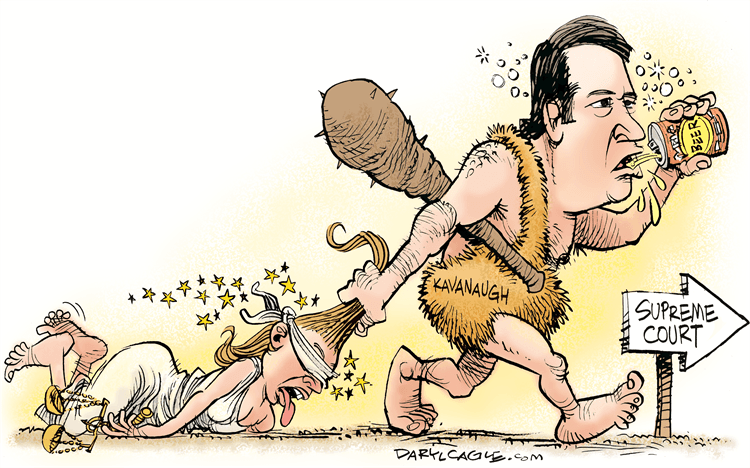
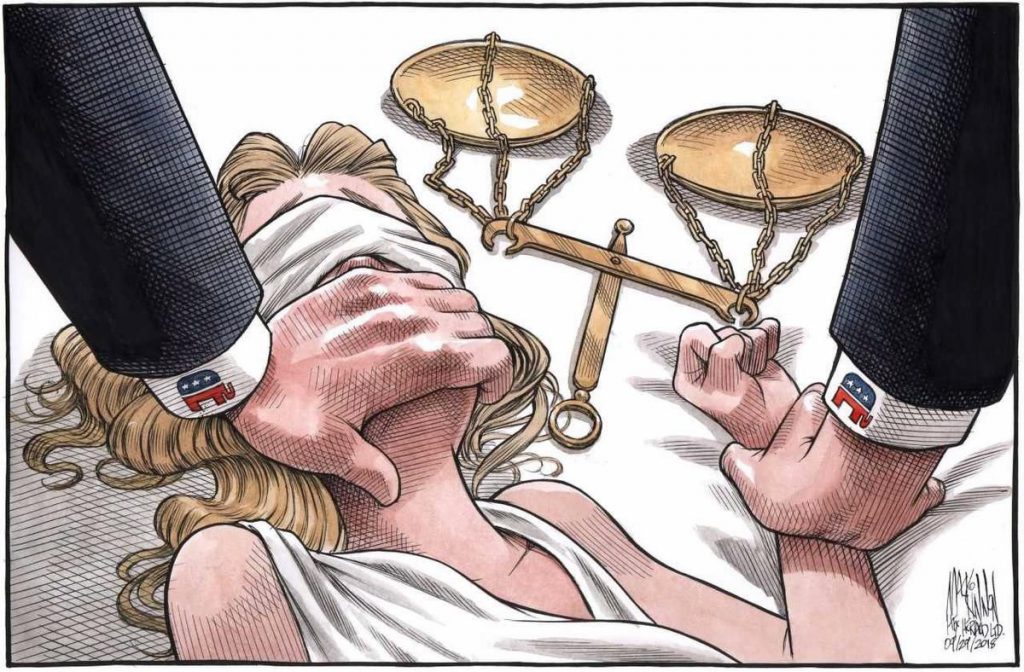
Dr. Ford receives attention in “She Said,” providing for the first time an extensive account of her experience as an ambivalent figure at the center of a polarizing national scandal. She told her lawyers she did not want to testify — even as they spoke publicly about her willingness to do so in order to keep her options open.
Dr. Ford’s story is often held up as a cautionary tale about the limitations of the #MeToo movement in a politically divided nation, and the cost for victims whose stories are often met with disbelief, scorn and threats. But “She Said” shows how Dr. Ford has motivated other women to open up about sexual assault.
Ms. Kantor and Ms. Twohey write about a group interview they conducted that included Dr. Ford and women who had made accusations against President Donald Trump and Mr. Weinstein, including Ms. Judd, Ms. Paltrow and Ms. Chiu, the former Miramax employee. As the women spoke, Ms. Chiu felt inspired by Dr. Ford and, soon afterward, decided she would go on the record for the first time.
Refer also to:
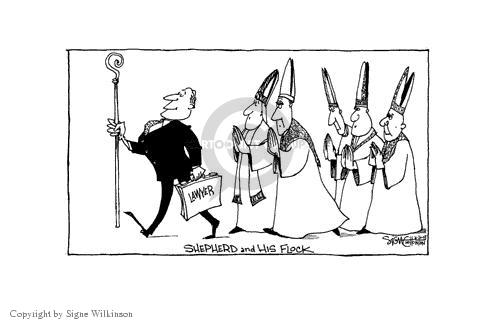
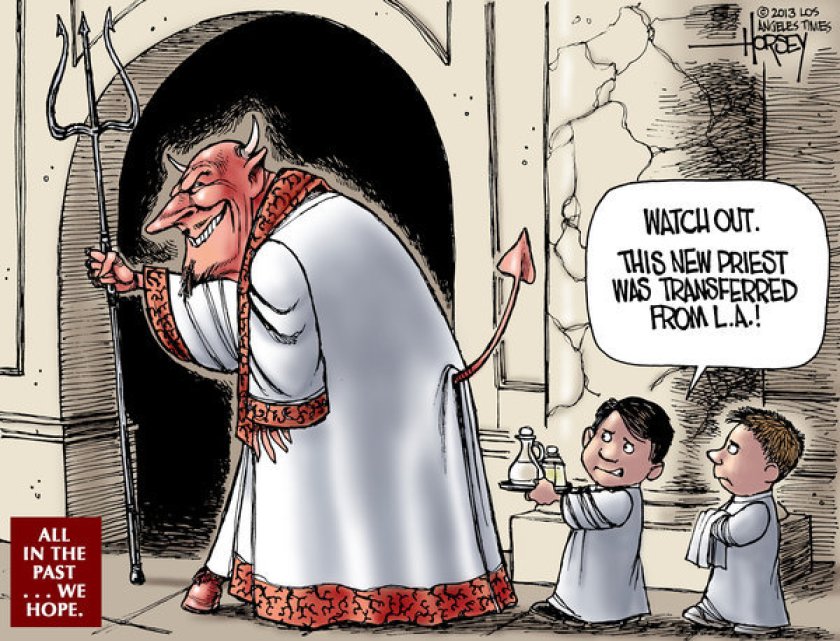
Addicted to Gag: What gives with these abusive judges?
Cornwall, Canada: Pedophilia victims given large settlements to get rid of their lawsuits, including 16 against Catholic Church, in all possibly totaling $70-100 Million with some individuals getting less than $20,000. “The Inquiry found the Catholic Church, police, the Ontario government and the legal system all failed to protect children from sexual predators.”
Justice understood? Or are some lawyers and the Canadian Bar Association wanting to silence the many Canadians concerned with the serious access to justice problems in Canada?
“Justice” system loves a good cover-up? Parents of Rocky View public school district student strangled by non-breakaway lanyard (donated by a corporation), settle lawsuit, keep dollar amount secret. Media seeks gag opened; Alberta court slams the door shut to ensure others filing lawsuits settle ‘n gag too, knowingly keeping the public (and our children) in harms away.
Would Justice Robert Beaudoin have let the rapist off if his daughter was one of the women raped? Ontario Crown serves Paul Batchelor notice of appeal, claims trial judge made errors. Errors or misogyny?
“Just” how rampant is racism, misogyny, dishonesty and abuse in Canada’s legal system? To find out, read rulings and listen to the galling bullshit some judges say in court.
Misogynistic Justice. Rapist after rapist set free by Canadian judges. Think those judges will let you seek justice if your water is frac’d by Encana, enabled, covered-up by authorities with AER violating your Charter rights trying to terrify you into submissive silence, enabled by Supreme Court of Canada?
Do you want fairness, equality, diversity, inclusion in Canada’s legal profession? In 2019, 85% of the legal profession in USA is white and mostly male. No wonder so many sexual assault victims are re-victimized in court and known convicted pedophiles are granted licence to practice law! No wonder our environment is underrepresented and unjustly served with vile demented gag orders.
“Unconscionably Unjust!” “Beyond the Pale!” Legal gag at it’s most vile: Protecting known multimillionaire pedophile Epstein and entire network, aided & abetted by? Lawyers! “Non-prosecution deal” gave Epstein and his pedophile ring immunity from all federal charges. How many churches & law societies? Will lawyers & judges hammer out another humdinger of a gag to make sure the world never finds out?
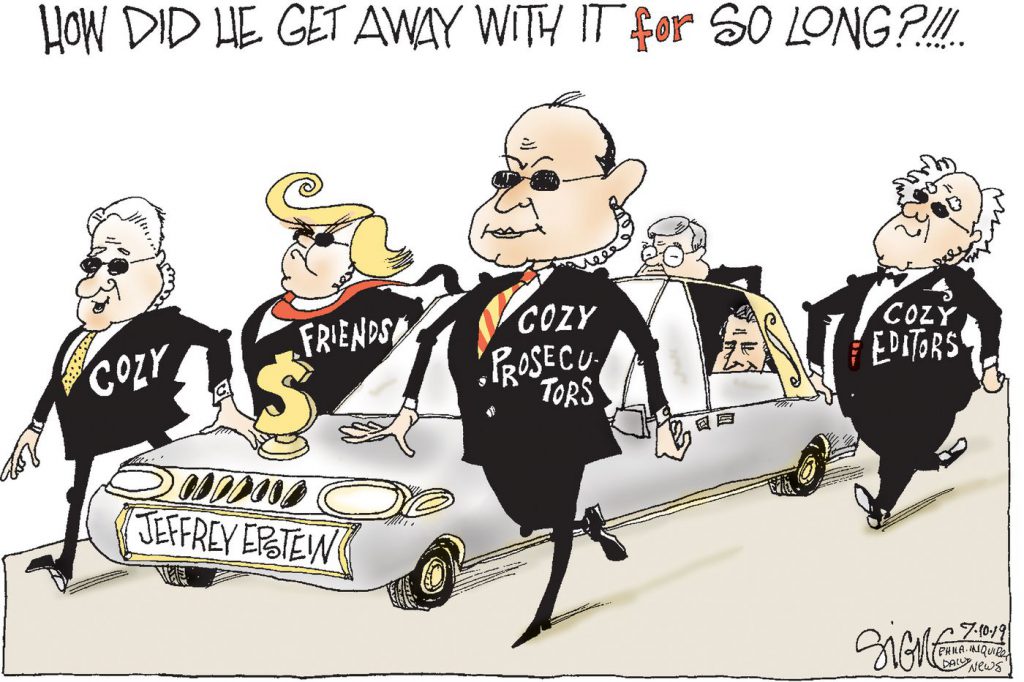
All the world’s not a stage, it’s a pedophile ring! Is Rod MacLeod’s ungagged legal victory against basilian pedophile priest why catholic/extreme right white lawyers took over Ontario’s law society a year later? To keep vatican’s Pedophile Ring & “Silent Shuffle” busy?
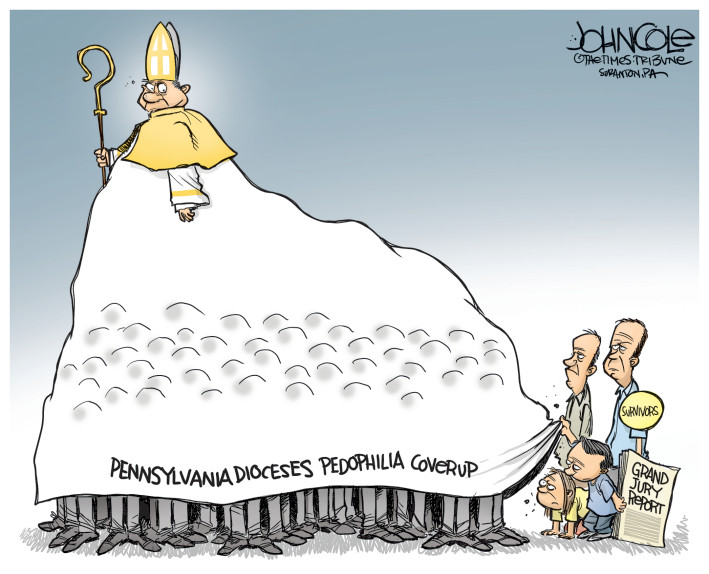
“Law Society of Ontario taken over by ‘right-wing, fundamentalist religious zealots?’” Do white privileged people think loading up on religious self-righteousness will hide the law society’s pedophilia? It’s not working.
Law Society of Ontario a Pedophile Ring? Racism, misogyny *and* enabling sexual abuse of children? Ottawa lawyer, John David Coon, in custody for sex crimes against four-year old daughter of one of his clients. Law Society documents reveal they gave Coon licence to practise law despite knowing of his prior criminal conviction for sexually assaulting another child.
Errors or more judicial misogyny? Appeal panel rules trial judge ‘erred,’ issues convictions on 25 charges related to 18 complainants for Chatham-Kent violin teacher; Panel requested different trial court judge determine sentencing
No wonder Canadian “justice” is so often misogynistic, racist &/or abusive. Looking in the mirror: Harassment in legal workplaces
“The [legal] system’s not broken; the system was built this way.” Of course it was! Just like it was built to piss on the poor, women, the environment and the Rule of Law itself
No wonder Canada’s legal system slithers around in Hell: ‘Knees together’ ex-judge Robin Camp should be able to practise law again, his lawyer argues
Unbelievable Gall! No wonder Canada’s legal system is broken! Ex-Judge “sex hurts & why didn’t you keep your knees together” Robin Camp seeks to practise law again in Alberta
Disgraced ex-judge Robin Camp said he’s learned his lesson. Really? “Knees Together” Camp Accompanied Ezra Levant On Trip To Train UK Rebel Staff, Camp stood by his comments about sexual assault, ex-Rebel employees say
Unprecedented yet far too late: 7 police agencies in Canada will let experts in sexual violence study uncensored case files on unfounded or inactive sexual assault investigations, “Right now, there is a bit of crisis across the country concerning victims’ confidence in the criminal justice system.” Surely they jest! “Justice” System? What “Justice?” There’s no confidence in Canada’s civil legal system either! Who’s going to investigate that?
What’s with so many judges not keeping their lips together? Protecting rape & pedophilia rings? How are citizens to trust & respect judges with so many bad lips on the bench? “That judge didn’t care about me,” Julie Kirby, 23, one of Keith Vallejo’s victims said Friday. “He only cared about the person he was convicting, and I think that is really kind of despicable.”
Oh Canada! Once-imprisoned lawyer (for child pornography) one step closer to getting his licence to practise law in Ontario, Two out of three lawyers on Law Society of Upper Canada tribunal decide he’s of ‘good character.’ Dissenting opinion finds Ronald Davidovic failed to prove he was rehabilitated.
MUST WATCH! ‘This Hour Has 22 Minutes’ Sketch: “Judges: a danger to Canadian women”
No still means “no”
Enabling sexual predators? Enabling Canadian judges revictimizing sexual assault victims? Enabling Canada’s demented abusive legal system? Threatening sexual assault victims to keep silent? Galling, throw-women-back-into-the-cave statements to Criminal Lawyers’ Association by Canada’s Chief Justice Beverley McLachlin
Doug Hendren: Fracking is Everywhere; We’ve got gag orders, no tape recorders, … ‘Cause the judge says that it ain’t legal, Walking ‘round, talking to people.
If frac’ing is safe & wonderful, why so many gag orders?
Fracking ‘silence’ for life: Gag orders on children & censored government data
“Justice” rears its farcical head, yet again. Radio reporter obtains judge-ordered frac harm settlement ‘n gag, but court stifles him! $3M settlement accidentally made public for 8 plaintiffs against Range Resources & ten other codefendants. Two plaintiffs feel “angry and defeated” by their settlement.
Another frac lawsuit bites the dust, Frac’d & contaminated aquifers for Pavillion Wyoming community not yet repaired: Jeff & Rhonda Locker settle with Encana & gag on their contaminated drinking water
Another Alberta farm family poisoned by the oil and gas industry, and their Alberta lawyer Kieth Wilson, settle & gag & betray the public interest: The Sakens settle with Bonavista Energy after area aquifer and farm at Edson contaminated with toxic chemicals. Where’s the AER? Where’s the punitive fine? Where’s Alberta’s Energy Minister? On another cushy trip to China with Encana?
Baytex Finally Successful, Gags & Settles Poisoned Alberta Families: Does a lawyer-touted “positive outcome” of displacing and gagging poisoned families, stop the poisoning? “Our house is contaminated…there’s a smell now…Part of the torture of all this is not only abandoning our farm, but the health experts…told us we shouldn’t bring anything (with us).”
Known mafia tactics used by drilling and fracking industry, Lifelong ‘frack gag’: Two Pennsylvania children banned from discussing fracking
